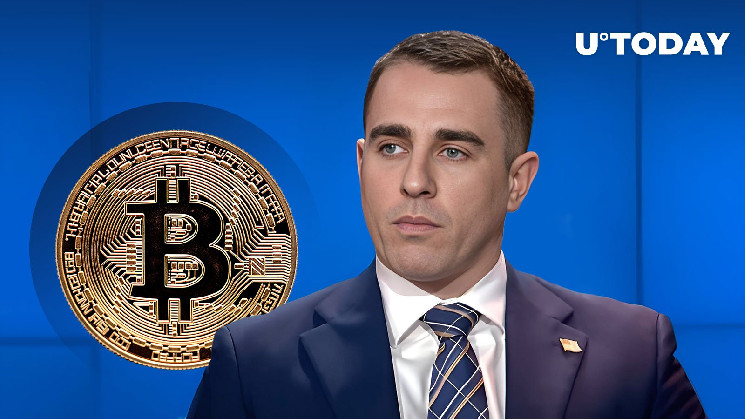[ad_1]
VC investor and Bitcoin podcaster Anthony Pompliano has voiced a mega-bullish Bitcoin prediction. He expects the price of digital gold to continue rising way above the $50,000 level and the reason is not the upcoming halving event.
“Bitcoin price has to go higher”: Pompliano
Pompliano, known on Twitter as simply “Pomp”, took to this platform to make a major Bitcoin price prediction. The angel investor believes that the $50,000 level reached yesterday is not the last stop for the flagship cryptocurrency.
Pompliano did not make any specific predictions. However, he stated that “the price has to go higher.” According to the expert, once Bitcoin goes higher, bitcoiners will start selling their BTC and it will all be scooped up by Wall Street funds to satisfy their demand that has been increasing rapidly.
$50,000.
The price has to go higher to get bitcoiners to sell their bitcoin to Wall Street and satisfy the increased demand.
— Pomp 🌪 (@APompliano) February 12, 2024
He did not make any mention of the approaching Bitcoin halvening event in the middle of April. After it occurs, the number of Bitcoins produced daily will be cut by half from 900 to 450 BTC. Currently, according to Pomp, Bitcoin ETFs are absorbing 12.5x BTC produced on a daily basis.
Bitcoin ETFs break 30-year record
Many experts believe that after the halving takes place, they will start acquiring even more Bitcoin every day. So far, after one month of trading, Bitcoin ETFs launched by BlackRock and Fidelity have seen more than $3 billion of inflows, thus breaking a 30-year record of ETFs.
On Monday, Pompliano made an appearance on CNBC’s Squawk Box show to talk about Bitcoin. He mentioned that the world’s leading cryptocurrency has become Wall Street’s favorite asset.
As if supporting this thesis, digital asset advisor at VanEck and Tether Gabor Gurbacs tweeted that other financial institutions are soon also likely to start launching spot-based exchange-traded funds, since “Bitcoin ETFs allow holders to use Bitcoin as a collateral and gain access to credit and leverage in the traditional markets.” He expects the current volumes of liquidity flowing into ETFs to be “nothing compared to what’s coming when more institutions begin to understand this.”
[ad_2]

